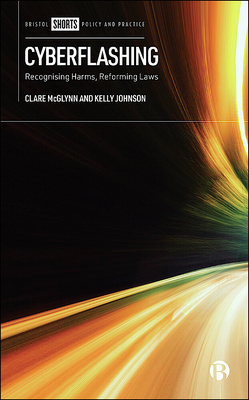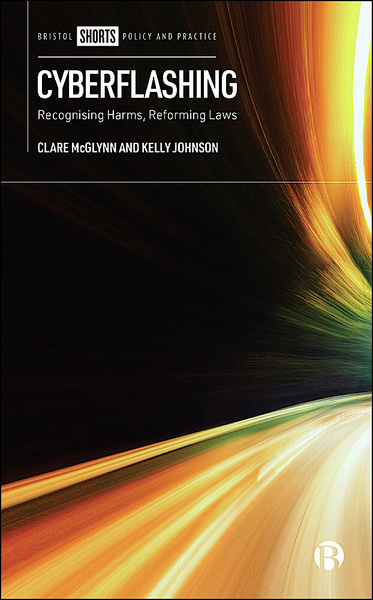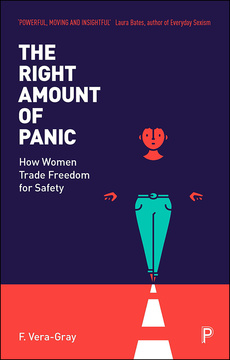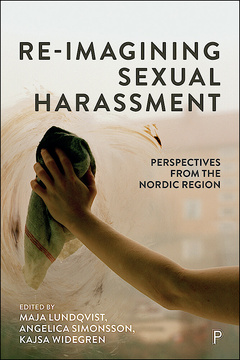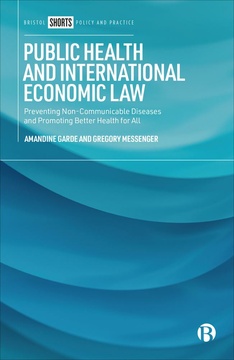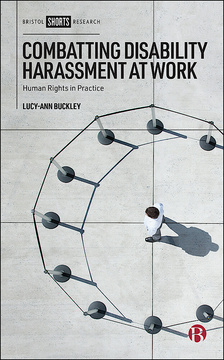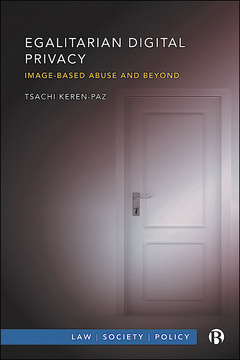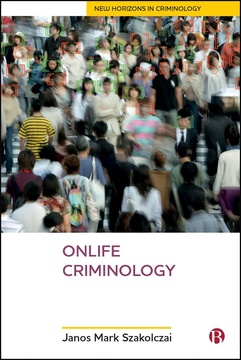Published
Mar 26, 2021Page count
160 pagesISBN
978-1529217629Dimensions
203 x 127 mmImprint
Bristol University PressPublished
Mar 26, 2021Page count
160 pagesISBN
978-1529217636Imprint
Bristol University PressPublished
Mar 26, 2021Page count
160 pagesISBN
978-1529217636Imprint
Bristol University PressIn the media
On our blog: From book publication to changing the law on cyberflashing
On our blog: POLICY BRIEFING: Cyberflashing: Recognising Harms, Reforming Laws
On our blog: Sociology needs critical realism
Cyberflashing has been on the rise since the Covid-19 pandemic. Yet, despite its prevalence and significant harms, cyberflashing is not a criminal offence in England and Wales.
This crucial book provides new in-depth analysis, understanding and insight into the nature and harms of cyberflashing. The authors consider recently adopted laws in the US, Singapore and Scotland, and set out proposals to criminalise cyberflashing as a sexual offence in English law.
This unique and timely study presents the first comprehensive examination of cyberflashing and the need to reform the criminal law.
“Anything written by McGlynn and Johnson on this topic is worth reading. Cyberflashing is a growing problem that the law struggles to tackle - this book details why that’s an issue for all of us.” Sophie Gallagher, The Independent
“A refreshing refusal of the routine trivialisation of uninvited so-called ‘dick pics’ – McGlynn and Johnson deliver a compelling case for criminalising these gendered intrusions, while carefully negotiating dilemmas around criminalisation more broadly.” Nicola Gavey, University of Auckland
“Clare McGlynn’s and Kelly Johnson’s latest offering is a vital first step in drawing attention to the phenomenon of cyberflashing.” Criminal Law and Criminal Justice Books
Clare McGlynn QC (Hon) is Professor of Law at Durham University with over twenty years’ experience influencing criminal law reform relating to sexual violence, image-based sexual abuse and pornography.
Kelly Johnson is Assistant Professor in Criminology at Durham University. Her research expertise includes domestic and sexual violence including cyberflashing, image-based sexual abuse and police responses to domestic abuse.
Introduction
Part I ~ Recognising Cyberflashing
Cyberflashing as a Sexual Intrusion: Nature, Extent and Motivations
The Harms of Cyberflashing
Part II ~ Reforming the Criminal Law
Justifying Criminalisation: Recognition, Redress and Justice
Cyberflashing and the Limits of English Criminal Law
Cyberflashing Laws: Comparative Perspectives
Criminalising Cyberflashing: Recommendations for Law Reform







